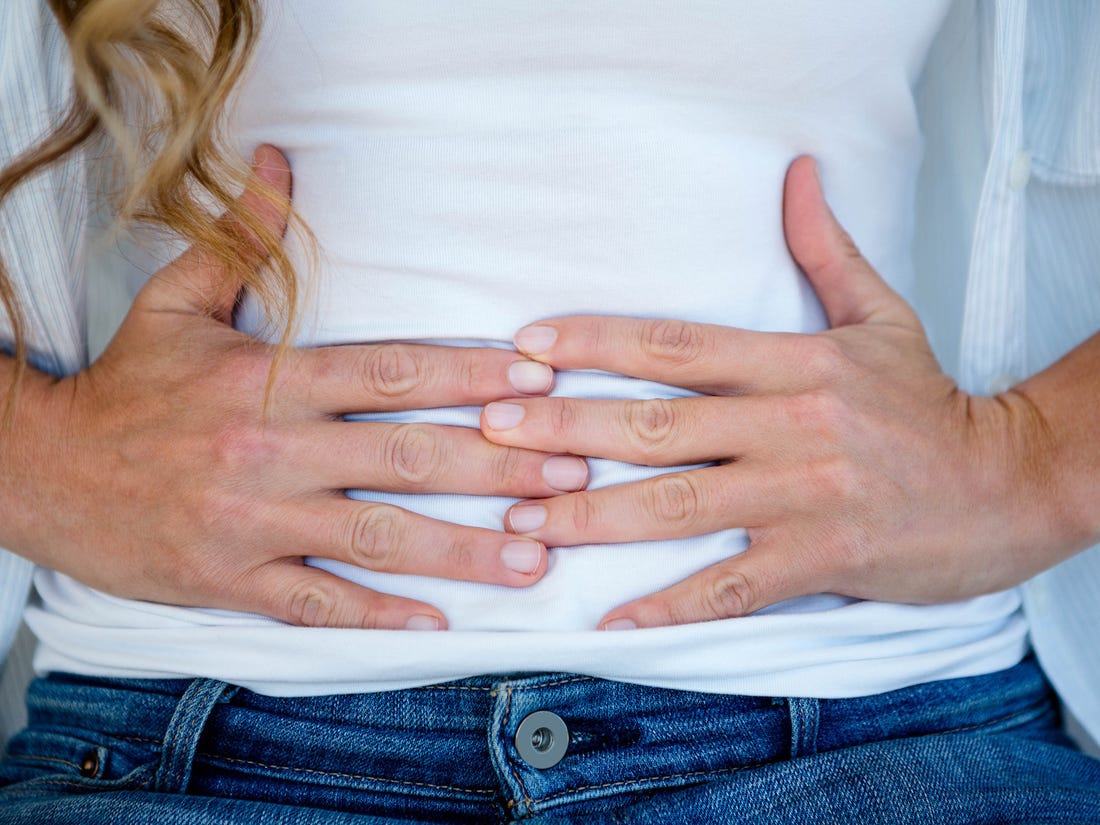
A Quick Hack to Fix Water Weight Problems…
Okay, so water retention is a problem for you.
And you are most likely wondering how much water weight you can lose to get to that shape and weight you have as your goal.
The solution to losing water weight may seem like an odd one.
If you are trying to lose fat, you are supposed to eat less fatty foods, right?
Some would think that to lose water weight that you would need to drink less water.
This is far from the case. The best way to lose water weight is to drink more water.
Water decreases appetite therefore decreasing caloric intake, but it also encourages the body to burn more fat and calories.
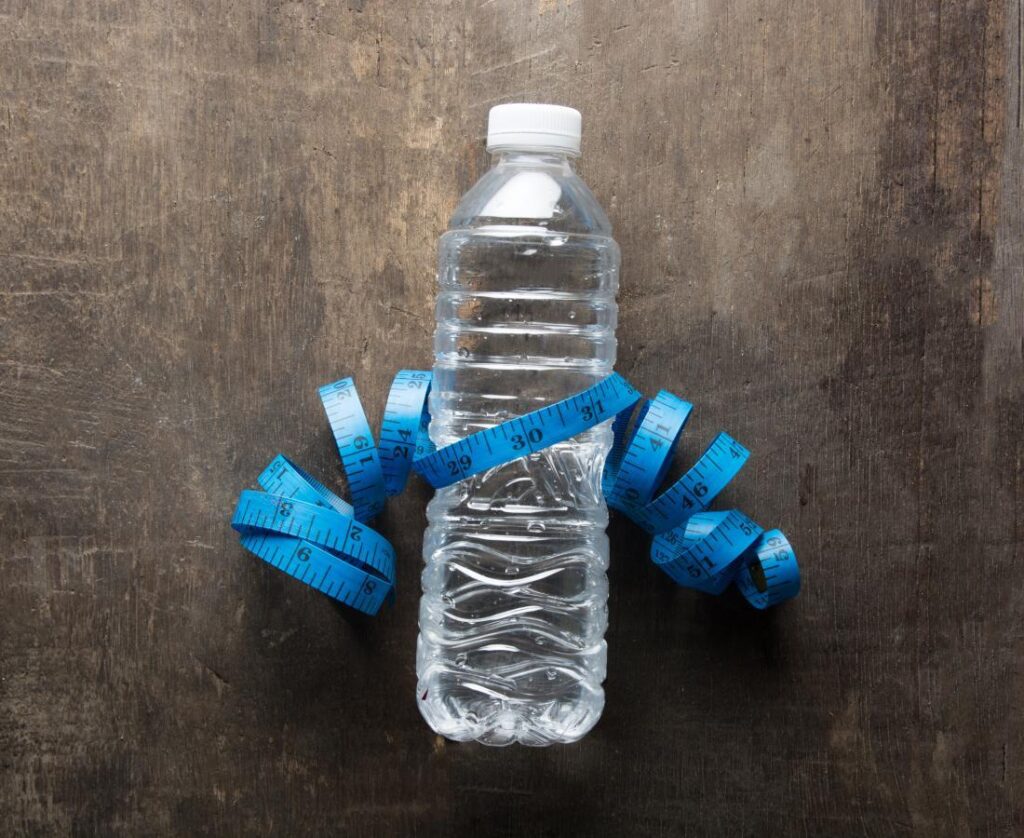
By serving as an appetite suppressant, calorie burner and decreaser of overall liquid calorie intake, overall weight loss is a certain result.
Let’s look at why that’s the case.
This post may contain affiliate links, which means I’ll receive a commission if you purchase through my link, at no extra cost to you. Please read full disclosure here.
Why Do You Retain Water Weight?
The body needs water to be healthy. All of your body’s important functions depend on water to be done efficiently.
If your body senses that it isn’t getting enough water to operate properly, it will assume there is a drought and start conserving it, i.e. retaining it, bloating and swelling.
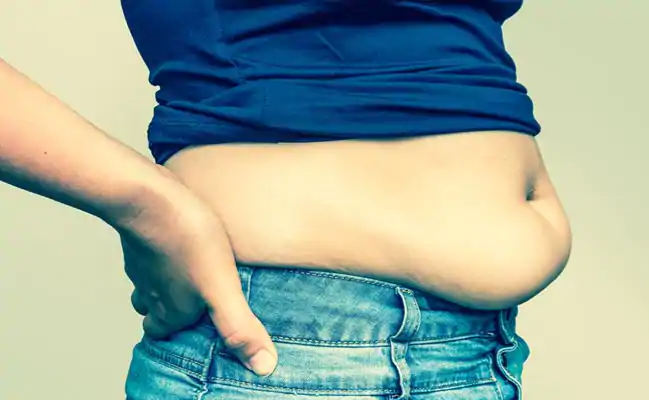
Your body releases a hormone that prevents the kidneys from filtering it.
Water helps to filter waste from the organs. Dehydration causes the kidneys to retain water. So staying hydrated is a great way to avoid water weight which is undoubtedly adding a few extra pounds.
Your body releases a hormone that prevents the kidneys from filtering it.
It’s just like when we are going through dry spells with the water supply and cut back on some of the necessary usage and try to get by with as little water being used as possible.
Which can lead to a lot of other problems in your body.
Can Not Drinking Water Cause Problems?
The obvious problem you have from not drinking enough water is dehydration and this leads to several other problems. One major issue is that water helps remove both solid and liquid waste from your body.
The water helps move things like toxins and fat along and out of your system.
It also helps break down the more solid matter that your body has broken down and helps it come out easier.
If it’s not getting enough water, fecal matter is just backing up in your system and that brings about many health concerns. Insufficient water intake results in constipation.
A way to in fact tell if you’re constipated without a true block of bowels would be having bowel movements in pebble form.
This is a visual identification of constipation due to dehydration. The fecal matter within your system starts to pebble up into small pieces due to a lack of water in your system to keep it hydrated.
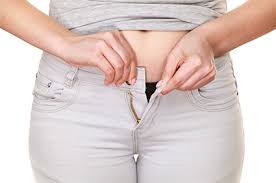
Lack of water also slows down your Intestinal process as well as metabolism. It can also keep nutrients from flowing through your body like it needs, with decreased beneficial results from the foods that you are eating..
How Much Water Do You Need To Drink?
An immediate response to realizing that you aren’t getting enough water is to overload it.
This won’t help you.
Although if you are showing signs of dehydration. Like decreased blood pressure or dizziness. You should immediately drink two 16 oz of water to get your blood pressure regulated to a normal level as soon as possible.
After that initial response, you should consistently be drinking water throughout your day to ensure your body has the proper water amount for it’s most efficient functioning. Avoiding bursts of water, by supplying consistent amounts of water.
Because what happens when the rain comes after a long dry spell and the ground is rock solid? The ground might absorb some of it, but it has to have some moisture in it to absorb more, just like a sponge.
That extra water that it can’t absorb just runs off somewhere. In your body, if it hasn’t been getting enough water, will be unable to handle large quantities and will just move it into the bladder.
That is why you end up having to urinate so much when you drink a lot more water than usual.
And yet increased urination should not be a deterrent to drinking necessary water amounts.
As a therapist I hear this so much from my older patients.
They become dehydrated and lack the necessary water in their systems, all because they don’t want to urinate as much, due to issues of incontinence.
This inconvenience cannot outshine the natural necessities of the body.
Finding other solutions to incontinence should be the resolution, as opposed to unsafely decreasing fluid intake.
For anyone that may have any cardiac issues, be sure to check with your cardiologist before increasing any water intake, due to any fluid restrictions they may advise to maintain heart health.
A healthy amount for you to drink is between one half and two thirds of your body weight in ounces. If you weigh 200 pounds, then you should be drinking between 100-133 ounces of water per day.
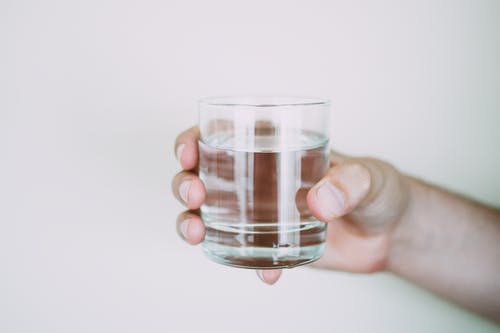
This will take some time, but when you and your body is getting used to it, your body is going to start believing that the drought is over so there is little need to retain as much.
Here’s My Favorite High pH Alkaline Water Filter Bottle:

Be sure to stay hydrated and drink water throughout any workout or exercise as well as outdoor activities including yard work or grass cutting.
Anytime your perspiration or sweat production is increased, you should be quickly replenishing dehydration in your body to avoid any dehydration or episodes of heat stroke that may occur due to insufficient fluids and hydration.
How much water weight you lose depends on how much water you drink ensuring you are getting enough, how much exercise you get, and how well you eat.
Links:
How to Release The Tight Muscles That Are Making You Look Fat



Leave a Reply